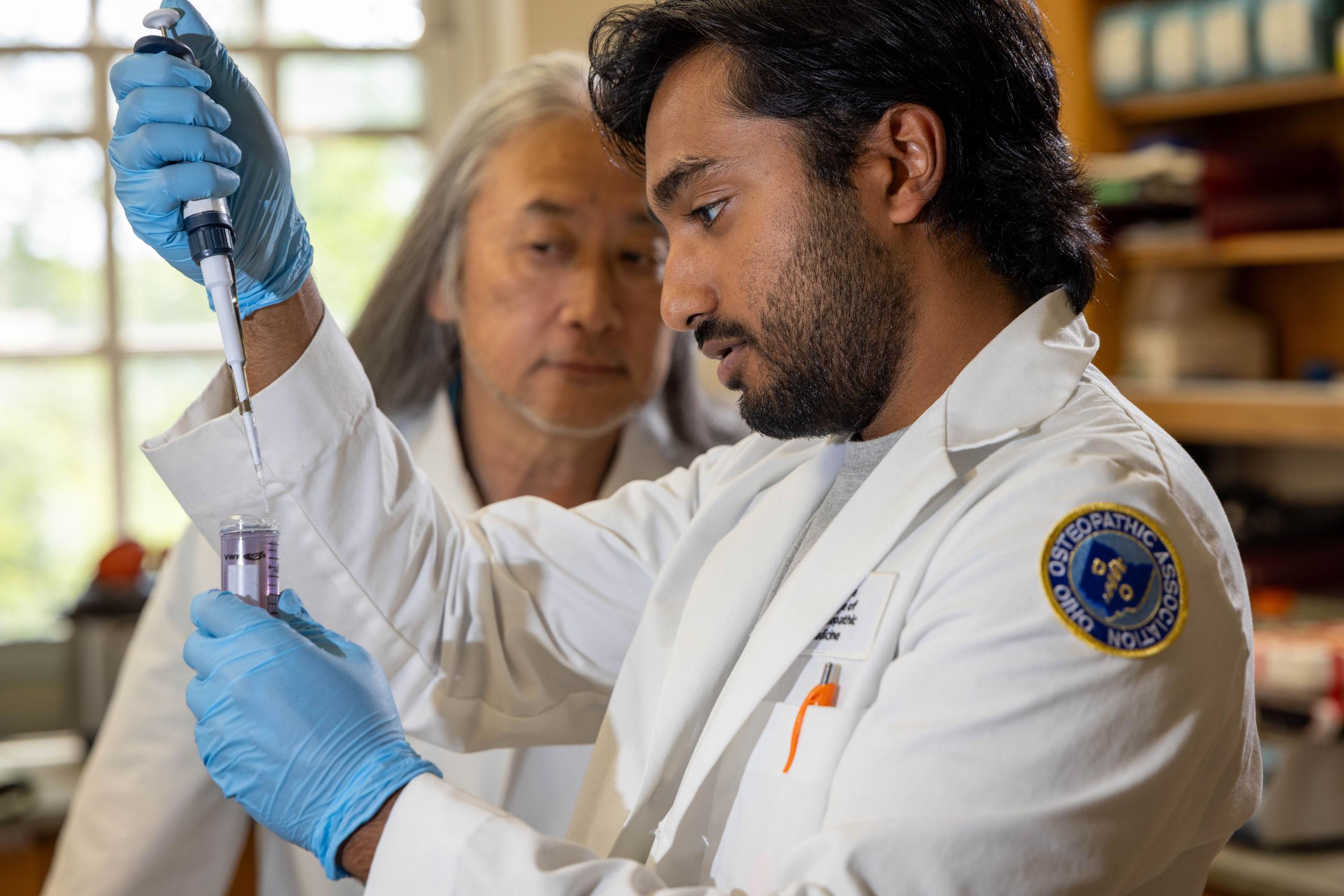
Research and Scholarly Advancement Fellowship (RSAF)
Important Dates and Information
Program Dates: May 18 - July 24, 2026
Application Deadline: January 15, 2026
Acceptance Notice: February 28, 2026 (Tentative)
About the Research and Scholarly Advancement Fellowship (RSAF) Program
All Heritage College students who will successfully complete the Year 1 medical school curriculum by the end of the spring semester immediately preceding the summer RSAF program are invited to apply. Students must be in good academic and professional standing, with no Code of Professional Standards violations on record. Students from all three Heritage College campuses are encouraged to apply.
Under the guidance of the research mentor, students conduct intensive short-term (10-week) research projects in selected areas of biomedical/basic, social-behavioral medicine, primary care, medical education, or clinical investigation. Students will participate in a core curriculum consisting of seminars on broad topics in medical research. They will complete an oral and/or poster presentation describing their research, to be presented in person on the Athens campus during the last week of the summer program.
The objectives of the RSAF program are to provide a valuable experience for highly motivated and talented medical students to participate in a defined research project; to acquaint students with scientific methodology; to enhance their analytic and laboratory skills; and to provide an opportunity to improve their presentation and writing skills. The program provides foundational skills for future physicians to use scientific evidence as a basis in their clinical decision making and to consider the possibility of pursing research as physician-scientists dedicated to enhancing health care.
The fellowship pays $3,000 to assist fellows with living expenses.
Students are expected to review the current program guidelines carefully as they contain very important information and details related to the program. Students must submit proposals according to the current program guidelines in order to be considered for funding.
Questions?
For additional information, please contact:
The Heritage College Office of Research and Grants, Nadine Borovicka, program manager, or Jessica Wingett, director of research administration and student research and RSAF program director

RSAF Class of 2025
| Student Name | Project Title | Primary Mentor |
|---|---|---|
| Abigail Bautista | Immunomodulatory Effects of DIPG- Derived Factors on THP-1 Monocytes | Rachid Drissi, PhD (Nationwide Children's Hospital) |
| Riddhi Bhatt | Investigating the Relationship Between Fat-Specific Protein 27 (FSP27) and Semaglutide in Skeletal Muscle Function | Bijnu Balakrishnan, PhD |
| Jacob Edwards | Age-Related Lower Limb Motor Control Brain Activity in Adolescent Female Athletes | Dustin Grooms, PhD |
| Karman Ghuman | Awareness of Brain Health Risk Factors Among First-Year HCOM Medical Students: An Opportunity for Prevention | Graciela Muniz-Terrera, PhD |
| Tohonne Konare | Decoding Molecular Mechanisms of Growth Hormone Mediated Multidrug Resistance through Proteomic Analysis in Cholangiocarcinoma (CHOL) Xenograft Models | Shigeru Okada, PhD |
| Robert Meinke | Visual Perturbation Neuromuscular Training Effects on Brain Activity for Secondary ACL Injury Prevention after ACL Reconstruction | Dustin Grooms, PhD |
| Lilye Morrison | Assessment of the efficacy of AAV.BAG3 gene therapy on expression of oxidative stress markers in MYOT and VCP mouse models | Zarife Sahenk, MD, PhD (Nationwide Children's Hospital) |
| Ali Osman | Defining Key Factors in Burnout and Resilience in Pediatric Residents and the Relationship to Performance | John Mahan, MD (Nationwide Children's Hospital) |
| Newmann Phan | Perceptions of Blood Glucose Levels Predict ER visits in Blind and non-Blind people with Diabetes | Allyson Hughes, PhD |
| Gary Stoffer | Evaluating FSP27’s Role in Semaglutide’s Action on Glucose Homeostasis in a Murine Model. | Vishwajeet Puri, PhD |
| Keeley Weese | Beyond Weight Loss: Semaglutide's (GLP1r agonist) Cardiometabolic Effect in Muscle-Specific Knockout Mice | Vishwajeet Puri, PhD |
| Haixin Yang | Induction of CEACAM1 Expression by Combined Green Tea Extracts & Ash Tree | Sonia Michael Najjar, MS, PhD |